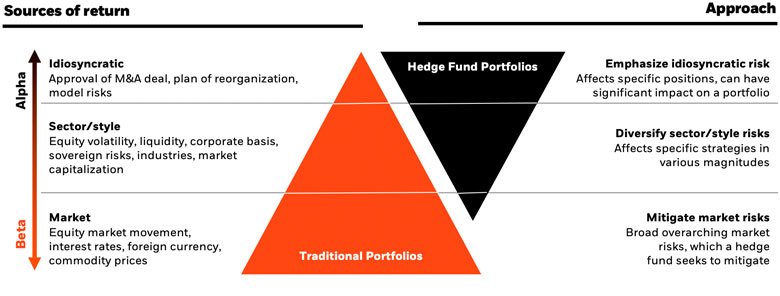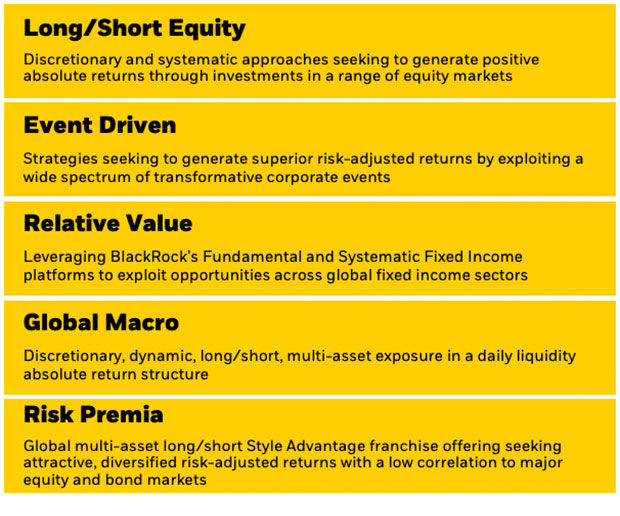Before you proceed, please take a moment to review and accept the following Terms and Conditions:
International Legal Information
“By accessing this website you, as a client or potential client, accept to receive information on this website in more than one language”.
Please read this page before proceeding, as it explains certain restrictions imposed by law on the distribution of this information and the countries in which our funds are authorised for sale. It is your responsibility to be aware of and to observe all applicable laws and regulations of any relevant jurisdiction.
Please note that you are required to read and accept the terms of our Privacy Policy before you are able to access our websites.
Once you have confirmed that you agree to the legal information in this document, and the Privacy Policy – by indicating your consent above – we will place a cookie on your computer to recognise you and prevent this page reappearing should you access this site, or other BlackRock sites, on future occasions. The cookie will expire after six months, or sooner should there be a material change to this important information.
By confirming that you have read this important information, you also:
(i) Agree that such information will apply to any subsequent access to the Individual investors (or Institutions / Intermediaries) section of this website by you, and that all such subsequent access will be subject to the disclaimers, risk warnings and other information set out herein; and
(ii) Warrant that no other person will access the Individual investors section of this website from the same computer and logon as you are currently using.
The BlackRock authorised unit trusts are funds authorised under the UK Financial Services and Markets Act 2000 and are generally available for investment by the public in the UK.
The offshore funds described in the following pages are administered and managed by companies within the BlackRock Group and can be marketed in certain jurisdictions only. It is your responsibility to be aware of the applicable laws and regulations of your country of residence. Further information is available in the Prospectus or other constitutional document for each fund. Please note that only some of the offshore funds seek distributor status in the UK.
The BlackRock Pensions Funds are available through the products of BlackRock Life Limited (authorised and regulated by the Financial Conduct Authority). They are available only to trustees and members of pension schemes registered under Part IV of the Finance Act 2004 via an insurance policy which would be issued either by BlackRock Life Limited, or by another insurer of such business.
This does not constitute an offer or solicitation to sell shares in any of the funds referred to on this site, by anyone in any jurisdiction in which such offer, solicitation or distribution would be unlawful or in which the person making such offer or solicitation is not qualified to do so or to anyone to whom it is unlawful to make such offer or solicitation.
Specifically, the funds described are not available for distribution to or investment by US investors. The units/shares will not be registered under the US Securities Act of 1933, as amended (the "Securities Act") and, except in a transaction which does not violate the Securities Act or any other applicable US securities laws (including without limitation any applicable law of any of the States of the USA) may not be directly or indirectly offered or sold in the USA or any of its territories or possessions or areas subject to its jurisdiction or to or for the benefit of a US Person.
The funds described have not been, nor will they be, qualified for distribution to the public in Canada as no prospectus for these funds has been filed with any securities commission or regulatory authority in Canada or any province or territory thereof. This website is not, and under no circumstances is to be construed, as an advertisement or any other step in furtherance of a public offering of shares in Canada. No person resident in Canada for the purposes of the Income Tax Act (Canada) may purchase or accept a transfer of shares in the funds described unless he or she is eligible to do so under applicable Canadian or provincial laws.
Applications to invest in any fund referred to on this site, must only be made on the basis of the offer document relating to the specific investment (e.g. prospectus, simplified prospectus or other applicable terms and conditions).
As a result of money laundering regulations, additional documentation for identification purposes may be required when you make your investment. Details are contained in the relevant Prospectus or other constitutional document.
If you are unsure about the meaning of any information provided please consult your financial or other professional adviser.
The information contained on this site is subject to copyright with all rights reserved. It must not be reproduced, copied or redistributed in whole or in part.
The information contained on this site is published in good faith but no representation or warranty, express or implied, is made by BlackRock Investment Management (UK) Limited or by any person as to its accuracy or completeness and it should not be relied on as such. BlackRock Investment Management (UK) Limited shall have no liability, save for any liability that BlackRock Investment Management (UK) Limited may have under the UK Financial Services and Markets Act 2000 (or the name of any replacement legislation if the legislation permits such a statement to be made), for any loss or damage arising out of the use or reliance on the information provided including without limitation, any loss of profit or any other damage, direct or consequential. No information on this site constitutes investment, tax, legal or any other advice.
Where a claim is brought against BlackRock by a third party in relation to your use of this website, you hereby agree to fully reimburse BlackRock for all losses, costs, actions, proceedings, claims, damages, expenses (including reasonable legal costs and expenses), or liabilities, whatsoever suffered or incurred directly by BlackRock as a consequence of improper use of this website. Neither party should be liable to the other for any loss or damage which may be suffered by the other party due to any cause beyond the first party's reasonable control including without limitation any power failure.
You acknowledge and agree that it is your responsibility to keep secure and confidential any passwords that we issue to you and your authorised employees and not to let such password(s) become public knowledge. If any password(s) become known by someone other than you and your authorised employees, you must change those particular password(s) immediately using the function available for this purpose on the Website.
You may leave the BlackRock Investment Management (UK) Limited website when you access certain links on this website. In so doing, you may be proceeding to the site of an organisation that is not regulated under the UK Financial Services and Markets Act 2000. BlackRock Investment Management (UK) Limited has not examined any of these websites and does not assume any responsibility for the contents of such websites nor the services, products or items offered through such websites.
BlackRock Investment Management (UK) Limited shall have no liability for any data transmission errors such as data loss or damage or alteration of any kind, including, but not limited to, any direct, indirect or consequential damage, arising out of the use of the services provided herein.
- Past performance is no guarantee of future performance.
- The value of investments and the income from them may go down as well as up and are not guaranteed.
- You may not get back the amount you invested.
- Any favourable tax treatment of a product (including but not limited to ISAs) is subject to government legislation and as such may not be maintained.
- The levels and bases of, and reliefs from, taxation changed in the last Budget and may change in the future.
- Rates of exchange may cause the value of investments to go up or down.
- Fluctuation may be particularly marked in the case of a higher volatility fund and the value of an investment may fall suddenly and substantially.
- For your protection, telephone calls are usually recorded.
Please note that while some of the BlackRock funds are "ring-fenced", others form part of a single company and are not. For BlackRock funds that do not have segregated liability status, in the event of a single BlackRock fund being unable to meet liabilities attributable to that BlackRock fund out of the assets attributable to it, the excess may be met out of the assets attributable to the other BlackRock funds within the same company. We refer you to the prospectus or other relevant terms and conditions of each BlackRock fund for further information in this regard.
Issued by BlackRock Investment Management (UK) Limited, authorised and regulated by the Financial Conduct Authority. Registered office: 12 Throgmorton Avenue, London, EC2N 2DL. Tel: 020 7743 3000. Registered in England No. 2020394. For your protection telephone calls are usually recorded. BlackRock is a trading name of BlackRock Investment Management (UK) Limited.
Past performance is not a guide to future performance. The value of investments and the income from them can fall as well as rise and is not guaranteed. You may not get back the amount originally invested. Changes in the rates of exchange between currencies may cause the value of investments to diminish or increase. Fluctuation may be particularly marked in the case of a higher volatility fund and the value of an investment may fall suddenly and substantially. Levels and basis of taxation may change from time to time.
BlackRock Investment Management (UK) Limited and BlackRock Advisors (UK) Limited are authorised and regulated by the Financial Conduct Authority. Registered offices: 12 Throgmorton Avenue, London, EC2N 2DL. Tel: 020 7743 3000. Registered Company No. 2020394 and 00796793 respectively. BlackRock International Limited, is authorised and regulated by the Financial Conduct Authority and the Securities and Exchange Commission. Registered office: 40 Torphichen Street, Edinburgh, Midlothian, EH3 8JB. Tel: 0131 472 7200. Registered in Scotland. Company no. SC160821. For your protection telephone calls are usually recorded.
BlackRock is a trading name of BlackRock Investment Management (UK) Limited, BlackRock Advisors (UK) Limited and BlackRock International Limited. © 2012 BlackRock Investment Management (UK) Limited, BlackRock Advisors (UK) Limited and BlackRock International Limited. All rights reserved.
The data reflects information and figures as at Today -2. The data and figures are not audited. Do not make any investment decisions based on these figures as they are subject to change. Past performance is not a guide to future performance. The value of investments and the income from them can fall as well as rise and is not guaranteed. You may not get back the amount originally invested. Changes in the rates of exchange between currencies may cause the value of investments to diminish or increase. Fluctuation may be particularly marked in the case of a higher volatility fund and the value of an investment may fall suddenly and substantially. Levels and basis of taxation may change from time to time.
BlackRock is a trading name of BlackRock Investment Management (UK) Limited, BlackRock Advisors (UK) Limited and BlackRock International Limited. © 2012 BlackRock Investment Management (UK) Limited, BlackRock Advisors (UK) Limited and BlackRock International Limited. All rights reserved.
The BlackRock unit trusts are managed by BlackRock Fund Managers Limited (authorised and regulated by the Financial Conduct Authority and a member of the Investment Management Association) which is the unit trust management affiliate of BlackRock Investment Management (UK) Limited.
The BlackRock ISA are managed by BlackRock Investment Management (UK) Limited (authorised and regulated by the Financial Conduct Authority).
Companies within the BlackRock Group which do not carry out investment business in the UK are not subject to the provisions of the UK Financial Services and Markets Act 2000. Accordingly, investors entering into investment agreements with such companies will not have the protection afforded by that Act or the rules and regulations made under it, including the UK's Financial Services Compensation Scheme.
The views expressed herein do not necessarily reflect the views of BlackRock as a whole or any part thereof, nor do they constitute investment or any other advice.
Any research found on these pages has been procured and may have been acted on by BlackRock for its own purposes.
This site is operated and issued by BlackRock Investment Management (UK) Limited which is authorised and regulated by the Financial Conduct Authority (Register number 119293). You can gain access to the FCA's rules and guidance notes from the following link: www.fca.org.uk. BlackRock Investment Management (UK) Limited is a company registered in England, No. 2020394. Registered Office: 12 Throgmorton Avenue, London EC2N 2DL. BlackRock is a trading name of BlackRock Investment Management (UK) Limited. VAT No GB 888 4204 87. General enquiries about this website should be sent to EMEAwebmaster@blackrock.com. This email address should not be used for any enquiries relating to investments.










